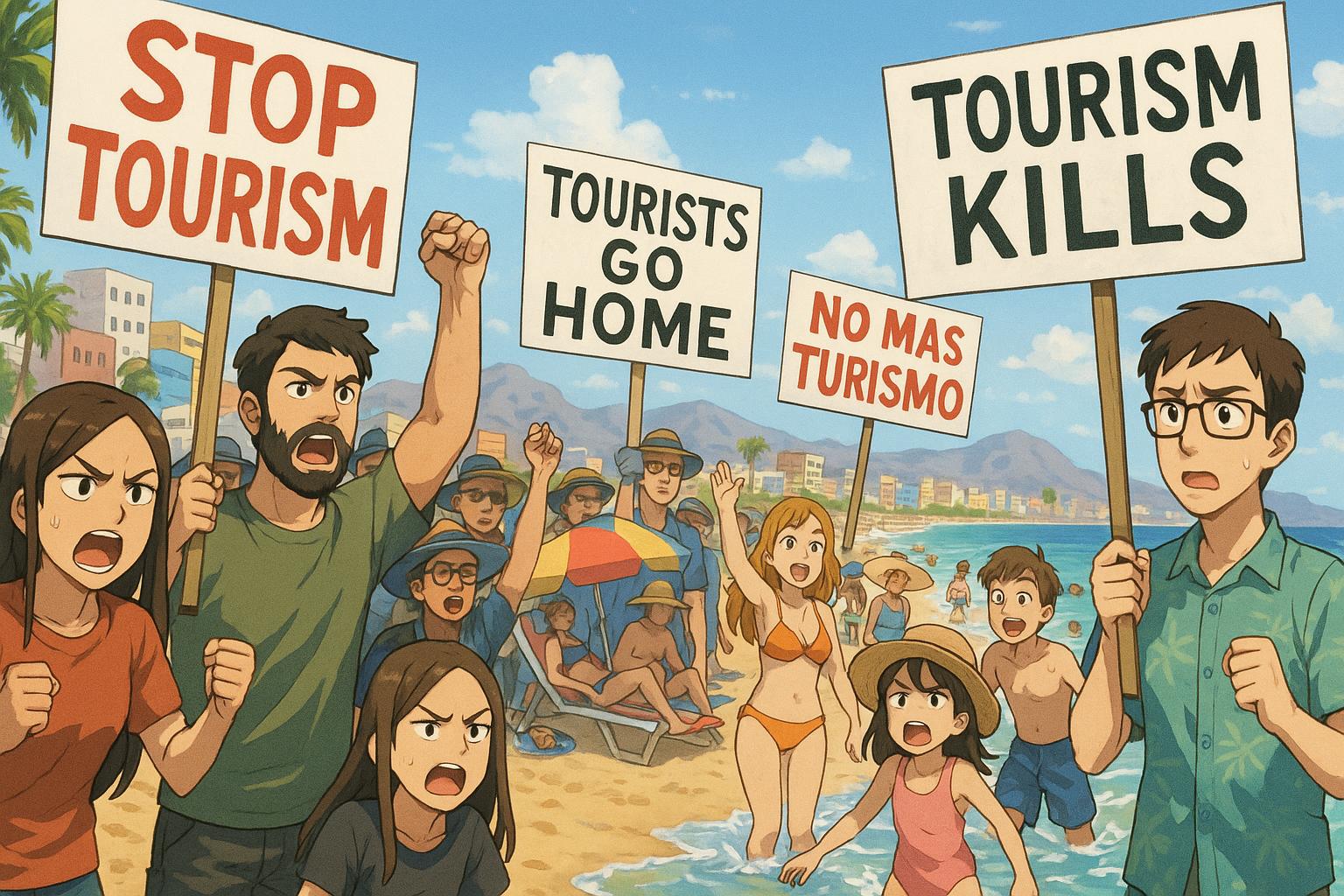Despite mounting tensions surrounding anti-tourism protests in Spain's Canary Islands, recent reports suggest that bookings for the region are on the rise among UK tourists. This trend unfolds against a backdrop of significant activism, with an estimated 123,000 protesters expected to rally under the slogan "The Canaries Have a Limit" this weekend. The protests highlight escalating concerns related to housing affordability and environmental degradation, driven by an influx of millions of tourists each year.
A number of British holidaymakers have expressed their experiences amidst this turmoil, reporting positive encounters during their stays in Spain. One individual shared their recent trip to Benidorm on social media, emphasising their enjoyment of the trip and praise for the Spanish hospitality. Other comments on social platforms mirrored this sentiment, suggesting that the difficulties highlighted by protestors did not translate into the experiences of most tourists.
However, the increasing anti-tourism sentiment cannot be dismissed. In previous months, tens of thousands of demonstrators have gathered in the Canary Islands to voice their opposition, citing issues such as rising living costs and declining quality of life resulting from mass tourism. Activists argue that areas inundated with visitors face challenges in maintaining affordable housing and preserving local ecosystems. The tourism industry, which welcomed a record 16 million visitors in 2023, has become a double-edged sword—driving economic growth while simultaneously alienating local communities.
The region's tourism minister has publicly urged visitors not to cancel their trips, asserting that the islands remain safe and welcoming despite the protests. This statement aligns with a broader response from officials who see tourism as a critical component of the local economy. They argue that blaming tourism for these social and environmental issues is simplistic and counterproductive.
Moreover, the broader context of rising tensions between locals and tourists is evident not only in the Canary Islands but across Spain. Reports of graffiti urging "Tourists go home" have emerged in major cities, further illustrating the growing discomfort with the changing dynamics of popular tourist destinations. Such sentiments reflect a growing 'tourism phobia' manifesting in various forms, as communities grapple with the strains associated with accommodating a vast number of visitors.
In the face of these challenges, some commentators suggest that adjusting travel patterns—such as altering school holiday lengths—could alleviate pressure during peak seasons. This proposal seeks to distribute tourism more evenly throughout the year, potentially easing the strain on both local infrastructure and communities.
For now, as travel bookings continue to increase despite the protests, it remains to be seen how this complex situation will unfold. The balance between economic necessity and community well-being is delicate, and the dialogue surrounding it is ongoing. Observers and participants alike will be watching closely to see whether the tourism landscape in the Canary Islands can adapt to these pressing challenges.
Reference Map
Source: Noah Wire Services
